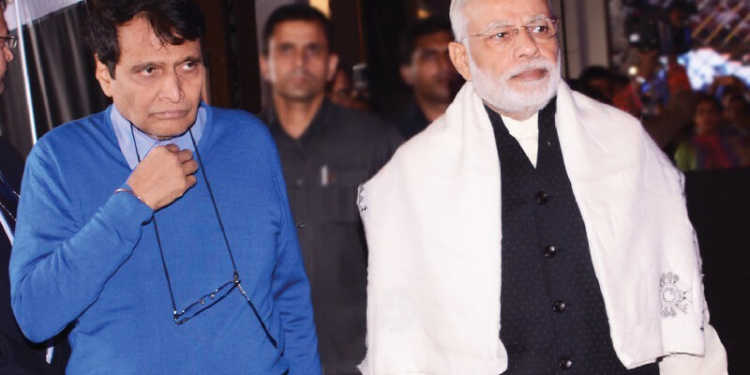During his historic 2014 general elections campaign, Narendra Modi famously said “I believe the government has no business to do business. The focus should be on Minimum Government but Maximum Governance.” What this indicated was that Modi was prepared to further liberate the economy from the shackles of the State control that has kept India lagging for decades. This policy also fell in line with the Swadeshi ideology advocated by Mahatma Gandhi and the Panchayat rule ideology advocated by RSS. It has now been over three years since PM Modi has come into power. There have been many reforms on the economic front that have promoted decentralization of power and made the market freer such as increasing the amount of FDI allowed across various sectors, green signal to more privatization across different sectors among many other reforms.Recently, the Narendra Modi government has announced the possibility of a new reform which could very well be the biggest economic reform by the government. Commerce and Industry Minister Suresh Prabhu recently announced to PTI that a new industrial policy that will seek to promote emerging sectors will be released early next year.
This new industrial policy will look to achieve three things. Firstly, it will reduce regulations. Secondly, it will promote modernization of the existing industry and thirdly, it will “take into account the new emerging industries.”
Transition from Business to Facilitator
PM Modi has already said that the role of the government is not to do business. Privatization across many sectors including the sale of Air India indicates that the government is ready to do exactly that. Furthermore, reducing regulations for industries will be the next big and bold step in fulfilling this promise. Reducing regulations will not only allow the government to transition from a business role to a facilitator role but will also create new employment opportunities in the country. With reduced regulations, new organizations will be created, and older organizations will be allowed to expand their operations.
The Indian government simply has too many businesses in their control. Air India, BSNL, BHEL, various banks, railways, Defence are just some that come to mind in the never-ending list. The government should not privatize everything (Defence should never and won’t ever be privatized). However, most of the business should be privatized. Either completely or in Private-public partnerships. As stated by Narendra Modi the government of India should NOT be a business but a facilitator.
Modernization of the existing industry
Ever Since Modi Government came to power, India has increased its ranking in many different categories, for example, “the ease of doing Business” list where India has moved up from 142 to 100th position recently. GST, Start-up schemes among other reforms have already been enacted to help modernize the existing industry by altering regulations already in place, however, there is only so much these reforms can do. Most industries are still lacking behind thanks to regulations and other government laws in place. Tearing down the old socialist-era regulations that currently exist in the country will probably be the next step for India to break into the truly progressive tier of countries.
Rigid rules and regulations have made it difficult for numerous industries to get modernized. This is a common problem in many different sectors. Many industries such as roadways and steel are now on the high-risk side of getting a loan. Thanks to the opposition, land clearance is still very difficult to get and with so much government interference and unnecessary hurdles almost every project gets halted which leads to loans going bad. Banks then have a hard time giving out loans since industries aren’t trustworthy.
So even if companies are able to get land, their project don’t take off given the lack of funding. This problem can be traced back to the previous regime and its lethargic approach which resulted in high NPAs.
infrastructure is on a promising track now, thanks to the able chieftainship of Nitin Gadkari, but other sectors still have a fair share of their old problems. Defence Sector is one example. Despite an increase in FDI, Modi Administration had to cancel at least $25 billion worth of tenders over the past three years, because of some unnecessary and complicated regulations.
Simplification and reduction of the regulations will invite investments which will help modernize industries faster and help the private sector grow. The Department of Industrial Policy and Promotion (DIPP) has recently in August proposed a draft industrial policy which is expected to create jobs for the next two decades, promote foreign technology transfer and attract $100 billion FDI annually.

























